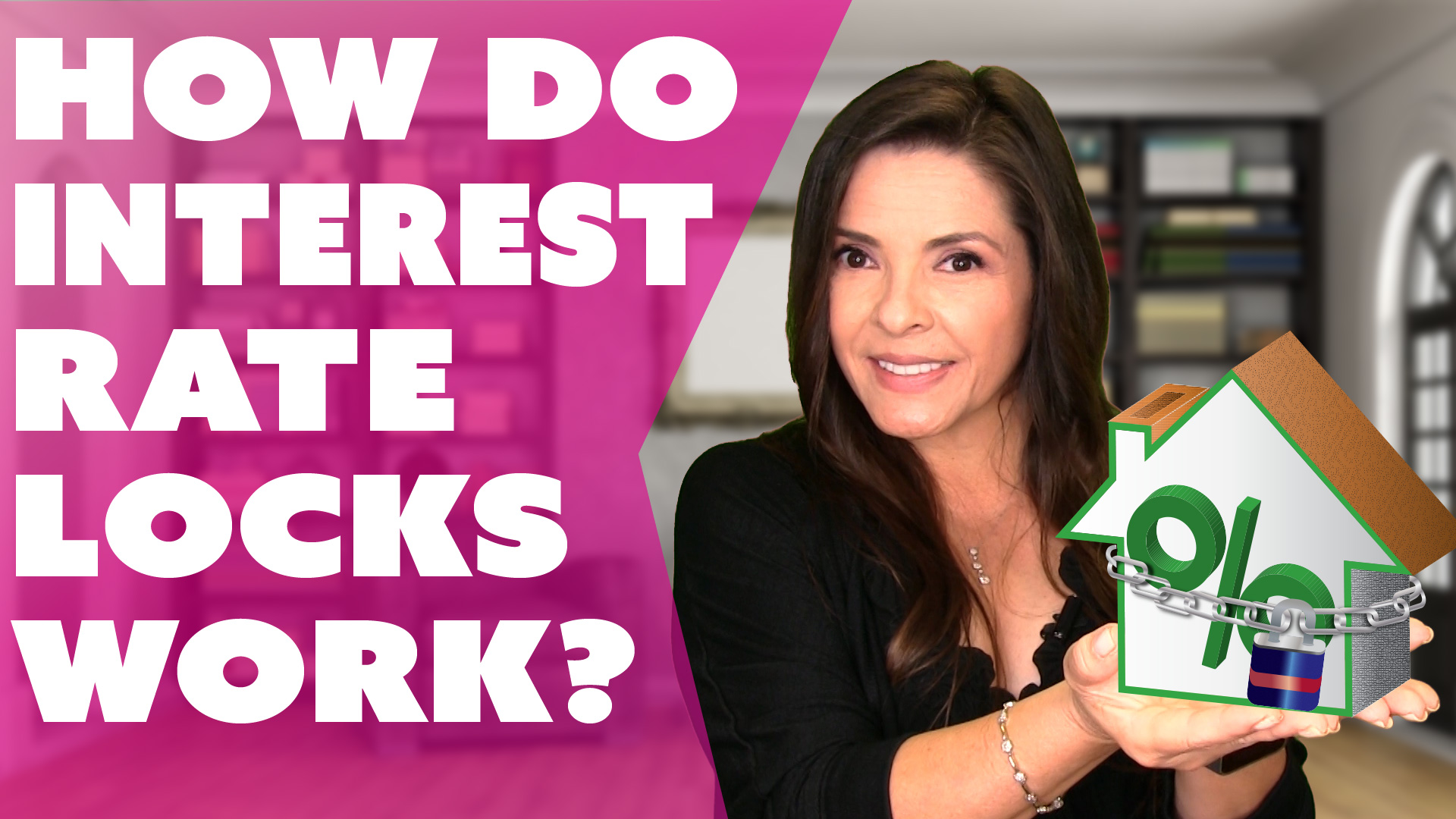How do interest rate locks work?
The Mortgage Minute is weekly informational series presented by Laura Borja, Your San Diego Home Loan Expert.
Have you been out shopping for properties and maybe had somebody calculate a mortgage payment for you? Does that mean that is the interest rate you will be receiving at closing? Maybe not! With all the talk about the upcoming that meeting in mid June and the possibility of an interest rate increase I thought it was a good time for us to talk about how interest rate locks work.
Keep in mind that every lender is going to have their own internal policies on how interest rate locks are handled but I’m going to give you some general guidelines
Interest rate movement
Interest rates change on a daily basis and sometimes even several times throughout the day if the market is particularly volatile.
Until you lock in your interest rate, the rate will be floating with a market. That means the rate can go up and down at any point.
Prefer video to reading- check out the YouTube video
What happens when the rate is locked.
When you lock in your interest rate, your lender is guaranteeing you that they will deliver a specific interest rate no matter what happens to the market as long as you close within the lock-in period.
Most lenders will offer locking periods of 15, 30, 45, 60 and sometimes even longer. Usually the longer the lock-in period the more expensive an interest rate will be. You want to make sure that you’re giving yourself a little bit of padding but there’s no reason for you to lock in for much longer than absolutely necessary.
However, it is important that you are truly realistic of how long it’s going to take to close your transaction.  Why? Because your rate is only guaranteed as long as you close within the lock in period.
Why? Because your rate is only guaranteed as long as you close within the lock in period.
What happens if the lock expires?
Check with your lender but usually you will be given the opportunity to pay a lock extension fee. In some cases, depending on the policy and what the interest rate market is doing, you might be forced relock your loan at the current market rates. That may not necessarily be the best thing if rates have gone up.
Are rate lock terms set in stone?
Once you lock in there is absolutely no chance of your rate changing, right? Wrong!
Let’s look at some of the reasons why your interest rate would change after locking in.
 Your rate is with guaranteed based on a specific property, a specific loan program, a specific credit score and a specific loan-to-value.
Your rate is with guaranteed based on a specific property, a specific loan program, a specific credit score and a specific loan-to-value.
Most lenders will not transfer a rate lock from one property to the other. If you decide you don’t like the house you are buying so much and you going to go buy another one, you should be prepared to renegotiate interest rates.
If you change loan programs then that interest rate lock is completely voided. You will need to take a look at where interest rates are for the new program that you are going to be utilizing for financing.
A change in credit scores or the loan to value of the transaction could trigger in either a hike or a drop in your interest rate.
Do you have any more questions about interest rate locks or any other mortgage-related topic?
Please reach out to me.
Send me an email
Give me a call – (858) 3-LOAN-SD
Text LOANINFO to 44222
Connect with me on Social Media.
Thanks for checking out this week’s The Mortgage Minute.
Please hit the like button if you enjoyed the Article.
Share it with your friends.
And of course, don’t forget to subscribe.
I’ll see you next week.

